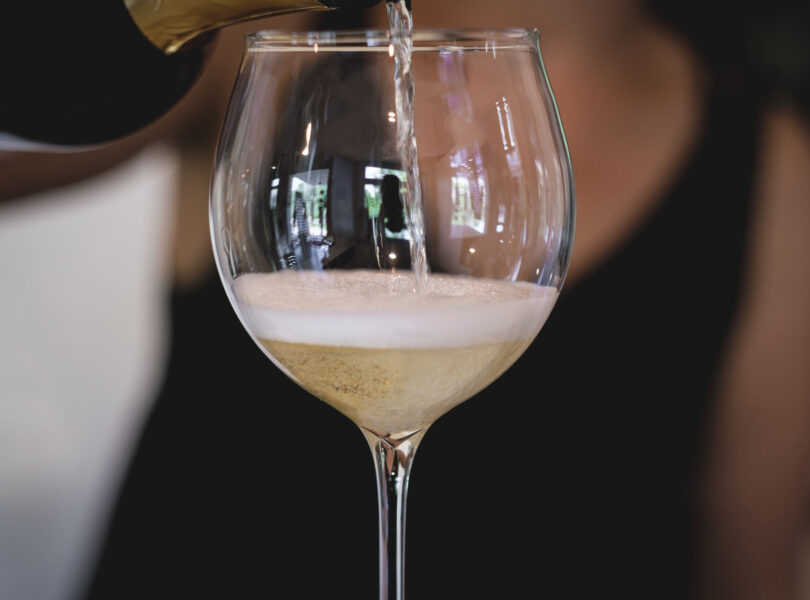
Méthode Traditionnelle
Sekt is a craft that requires time and precision.
In 2010, we introduced the first Harkamp Brut Reserve. Since then, a lot has changed. Our range now includes many different, complex sparkling wines produced using traditional bottle fermentation.
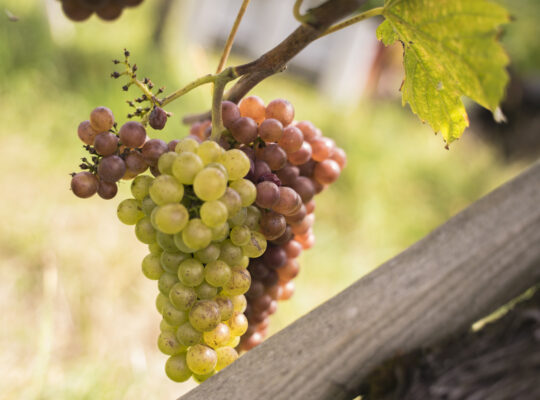
With great love for the vineyard
The biodynamic cultivation of our vineyards is crucial for the quality of our sparkling wines. Through the cycles of a natural, biodynamically managed agriculture, our grapes develop in a particularly precise direction, expressing the full potential of their Sausal origin.
The right timing during the harvest also plays a crucial role in enabling the right balance between ripeness and freshness. Only completely healthy and unharmed grapes are hand-picked and brought to the cellar for further processing.
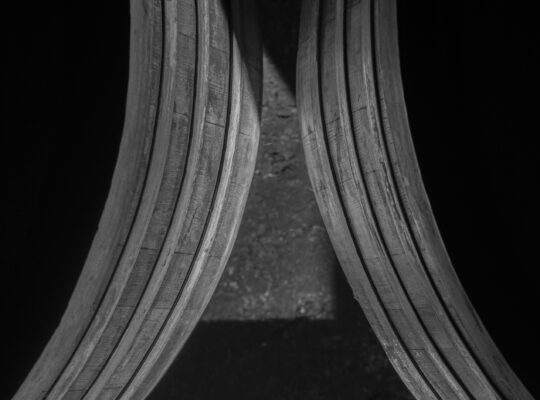
Gentle handling of the grapes
After the manual and selective grape harvest, a gentle whole-bunch pressing takes place. The top 50% in terms of quality of the juice is used for the base wine of the sparkling wine. The individual plots of our vineyards are pressed separately to highlight the specific character of each grape. Our base wines are then spontaneously fermented and mature for several months in large wooden barrels on the lees. Here as well, we give the wines plenty of time to develop independently.
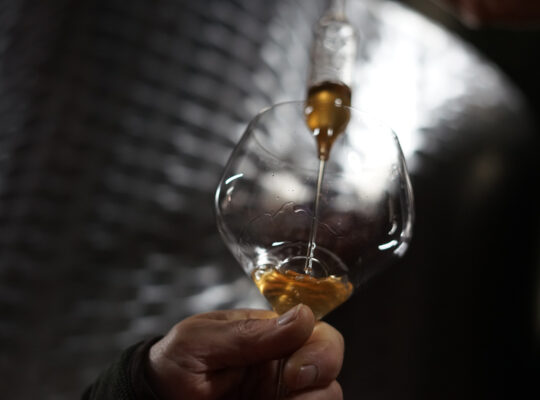
cellar instincts
Now begins the great art of making sparkling wine. The blending of the individual base wines, known as the assemblage, is one of the central elements of traditional sparkling wine production. With great care and patience, we taste our wines over several months to ultimately find the perfect balance for each sparkling wine
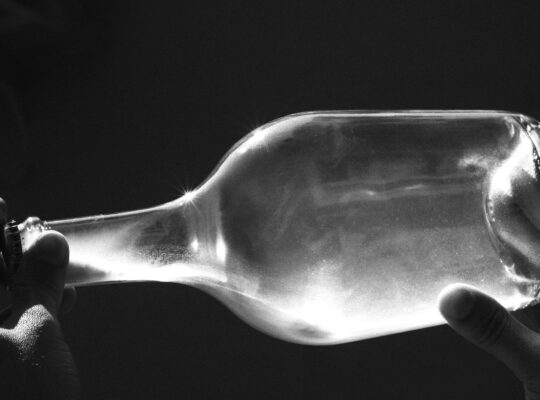
The path to the bottle
Now, it gets effervescent. The cuvées are filled into the bottle along with the tirage liquor, a mixture of organic sparkling wine yeast and organic sugar. The real magic begins now. The added yeast converts the sugar into alcohol and CO2, naturally creating the carbonation in the bottle. The most crucial aspect of traditional bottle fermentation is that the transformation from still to sparkling wine takes place entirely within the bottle. This process requires a lot of time and finesse
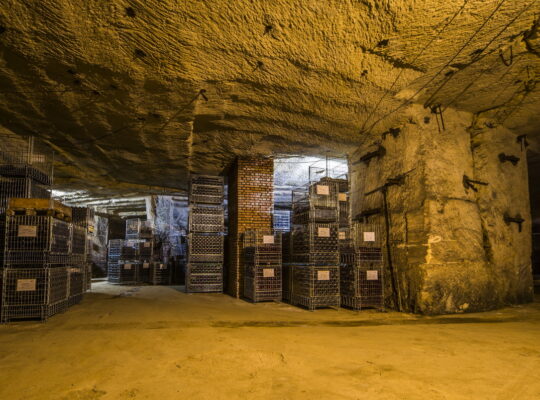
Allowing time on the lees
Once the second fermentation in the bottle is complete, our sparkling wines undergo maturation in a limestone cave. Following the Champagne model, we store them there at 8-10 degrees Celsius in complete darkness for up to 84 months and even longer on the lees. The extended contact with the lees enhances the aromatic structure of the sparkling wines, provides a creamy mouthfeel, and imparts an elegant and fine effervescence.
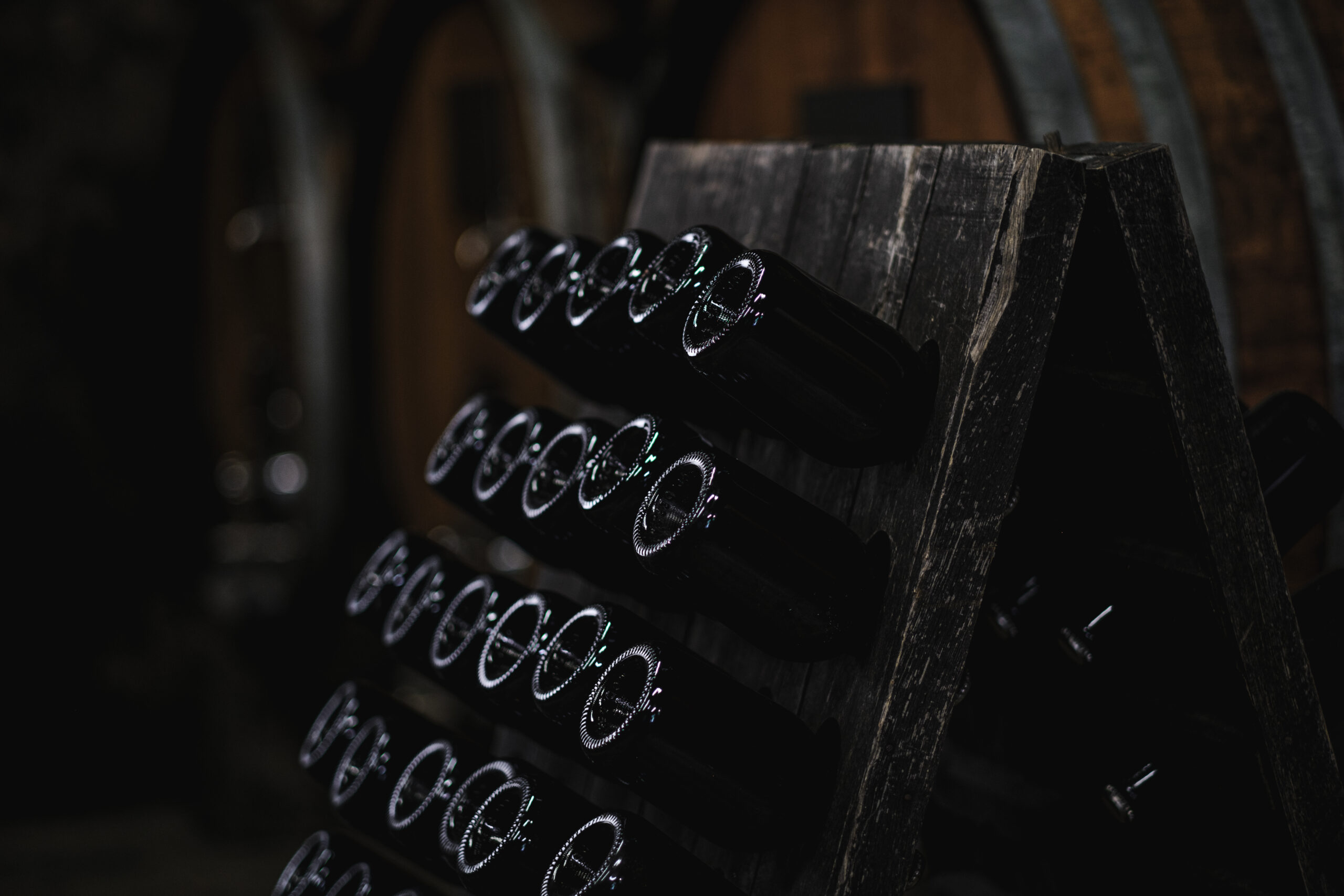
Onto the riddling machine
When our sparkling wines have reached their peak of maturation, they return to our cellar at Villa Hollerbrand. Now, we need to separate the yeast deposit from the sparkling wine. To do this, the bottles are placed in riddling boxes (gyropalettes), which are subsequently moved at various angles every few hours. The goal of this process is for the yeast to gradually settle in the bottle neck. At the end of the riddling process, the sparkling wine bottle is positioned upside down, and the yeast is ready to finally exit the bottle.
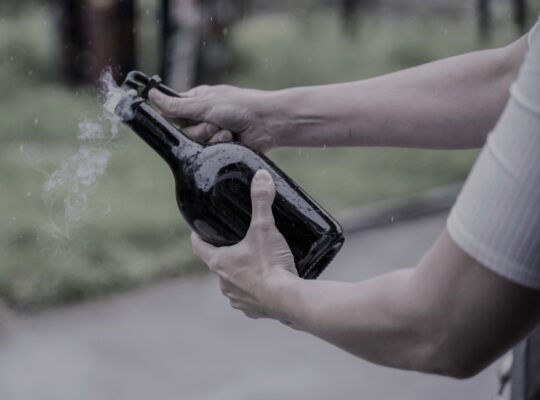
Disgorging
Now it’s getting serious. The yeast deposit, now sitting in the bottle neck, can finally be removed. We utilize both techniques for disgorging: Dégorgement à la Volée (warm disgorging) and à la Glace (cold disgorging). The crown cap is removed at a specific angle, and the yeast sediment is ejected due to the high pressure in the bottle. It’s important to ensure that all the yeast is completely removed while avoiding the loss of too much sparkling wine.
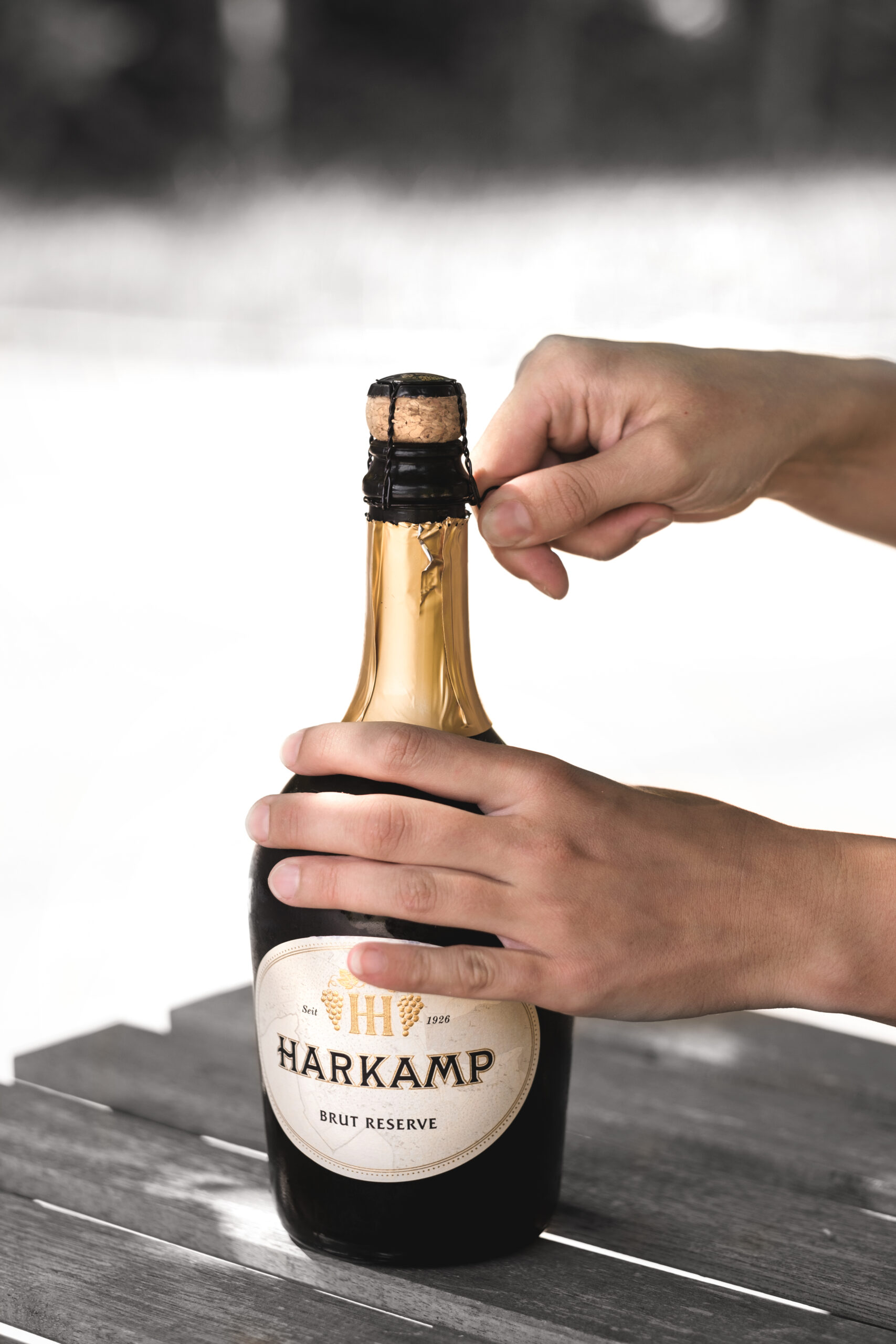
Dosage
Before sealing the sparkling wine with a natural cork, we add the so-called ‘dosage,’ which imparts the desired sugar content and flavor note to the fizz. Ensuring digestibility is of great importance to us when it comes to our sparkling wines. Therefore, they receive a very low dosage, always falling within the brut nature – brut range.
Now, after a long period of creation, the sparkling wine is complete and ready to delight. And one thing we can tell you is that the wait always pays off.